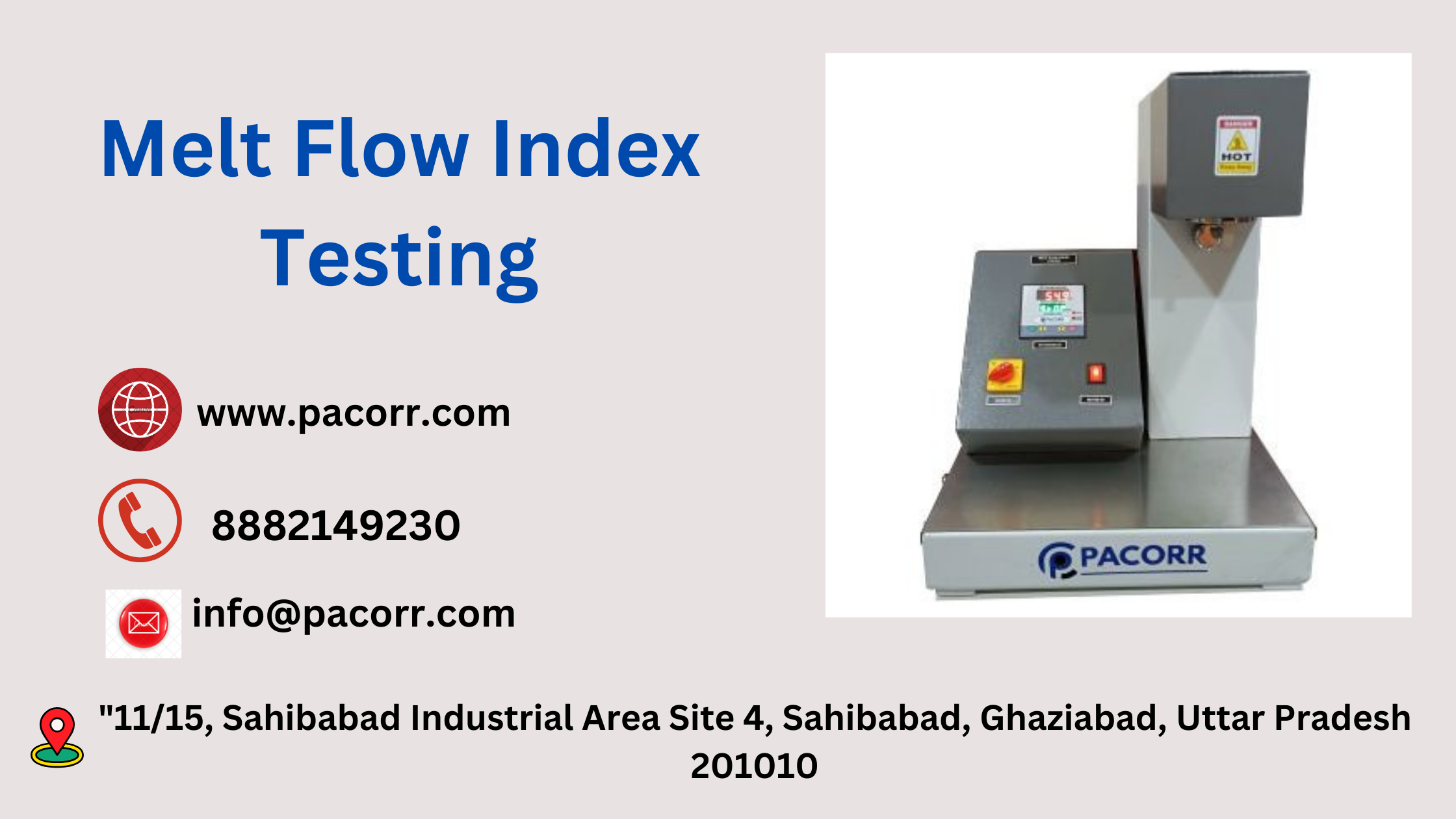Introduction
In the world of polymer manufacturing and processing, understanding the properties of materials is crucial. One key aspect of this is determining how a polymer will behave under various conditions. This is where the Melt Flow Index (MFI) Tester becomes invaluable. This article delves into the Melt Flow Index Tester , explaining its importance, functionality, and application in ensuring the quality and performance of polymer products.
What is a Melt Flow Index Tester?
A Melt Flow Index Tester Price is a device used to measure the flow rate of a polymer melt through a specified die under controlled conditions of temperature and pressure. The result, known as the Melt Flow Index (MFI), indicates the viscosity of the polymer and its ease of flow during the molding process. This parameter is essential for manufacturers to understand the processing behavior and end-use performance of polymer materials.
Why is Melt Flow Index Important?
The Melt Flow Index is a critical property in polymer processing for several reasons:
- Quality Control: Consistent MFI values ensure that the polymer material has uniform properties, leading to consistent product quality.
- Process Optimization: By understanding the flow characteristics of a polymer, manufacturers can optimize processing conditions to enhance efficiency and reduce waste.
- Material Selection: The MFI helps in selecting the right polymer grade for specific applications, ensuring optimal performance.
- Compliance and Standards: Adhering to industry standards and specifications often requires precise MFI measurements to meet regulatory requirements.
How Does a Melt Flow Index Tester Work?
The Melt Flow Index Tester operates on a straightforward principle. Here’s a step-by-step overview of the process:
- Sample Preparation: A small amount of polymer sample is loaded into the heated barrel of the tester.
- Melting: The polymer is heated to a specific temperature, causing it to melt.
- Extrusion: A weight is applied to the molten polymer, forcing it through a die of a specified diameter.
- Measurement: The amount of polymer extruded in a set time (usually 10 minutes) is measured and expressed in grams. This value is the Melt Flow Index.
Features of the Melt Flow Index Tester
Modern Melt Flow Index Teste come with a range of features to enhance accuracy and ease of use:
- Digital Display: Provides precise readings and easy monitoring of test parameters.
- Temperature Control: Ensures consistent and accurate temperature settings for reliable results.
- Automatic Timer: Facilitates precise measurement intervals.
- Interchangeable Weights and Dies: Allows for testing under various conditions to match industry standards.
Applications of the Melt Flow Index Tester
The Melt Flow Index Tester finds applications in numerous industries:
- Plastic Manufacturing: Ensures that raw materials meet required flow properties for injection molding, extrusion, and other processes.
- Quality Assurance: Used by quality control laboratories to verify the consistency of polymer batches.
- Research and Development: Assists in the development of new polymer formulations with desired flow properties.
- Compliance Testing: Helps manufacturers comply with international standards such as ASTM D1238 and ISO 1133.
Choosing the Right Melt Flow Index Tester
Selecting the appropriate Melt Flow Index Tester involves considering several factors:
- Range and Precision: Ensure the tester covers the range of MFI values relevant to your materials and offers high precision.
- Ease of Use: Look for features like user-friendly interfaces and automated functions to simplify the testing process.
- Compliance: Verify that the tester meets relevant industry standards and specifications.
- Durability and Maintenance: Opt for robust designs that require minimal maintenance for long-term reliability.
Conclusion
The Melt Flow Index Tester is an essential tool in the polymer industry, providing valuable insights into the flow properties of materials. By ensuring consistent quality, optimizing processes, and aiding in material selection, it plays a crucial role in manufacturing high-performance polymer products. Whether for quality control, research, or compliance, investing in a reliable Melt Flow Index Tester Price is a step toward achieving excellence in polymer processing.
Understanding the intricacies of the Melt Flow Index and utilizing the right testing equipment can significantly enhance your polymer processing capabilities, ensuring your products meet the highest standards of quality and performance.
FAQs
- What does the Melt Flow Index indicate? The Melt Flow Index (MFI) indicates the viscosity and flow characteristics of a polymer melt under specific conditions, which is essential for understanding how the material will behave during processing.
- How is the Melt Flow Index measured? The MFI is measured by heating a polymer sample, applying a specified weight, and extruding the molten polymer through a die. The amount of polymer extruded in 10 minutes is measured in grams and reported as the MFI.
- Why is the Melt Flow Index important in polymer processing? The MFI is crucial for ensuring consistent material quality, optimizing processing conditions, selecting appropriate materials for specific applications, and complying with industry standards.
- What features should I look for in a Melt Flow Index Tester? Key features include a digital display for accurate readings, precise temperature control, an automatic timer, and interchangeable weights and dies for versatile testing conditions.
- Can the Melt Flow Index Tester be used for all types of polymers? Yes, the Melt Flow Index Tester can be used for a wide range of thermoplastic polymers, as long as the appropriate test conditions (temperature and weight) are selected to match the material properties.
- What are the common standards for Melt Flow Index testing? Common standards include ASTM D1238 and ISO 1133, which specify the procedures for measuring the MFI of thermoplastic polymers.
- How does the Melt Flow Index impact product performance? A consistent MFI ensures that the polymer material will have uniform processing behavior, leading to consistent quality and performance in the final product.
- How often should the Melt Flow Index Tester be calibrated? Regular calibration is essential for maintaining accurate and reliable measurements. The frequency of calibration depends on usage and manufacturer recommendations, but it is generally advised to calibrate the tester annually.Top of Form
Bottom of Form
